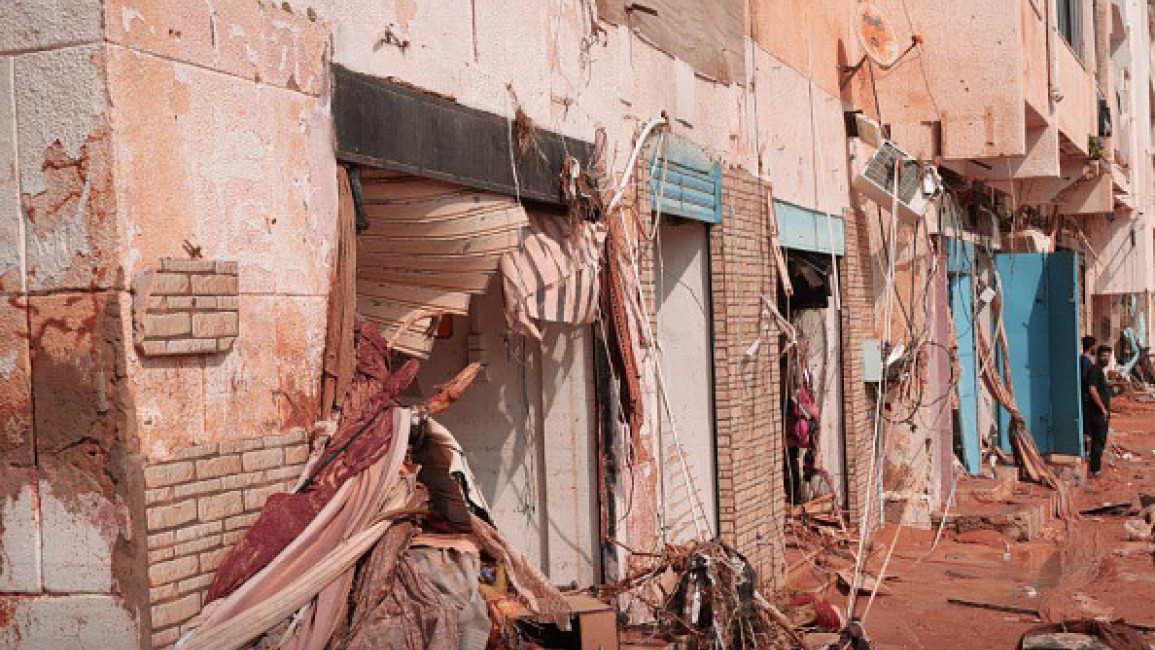Libya: September flood disaster requires $1.8 bln in recovery funds, report says
Libya's deadly flash flood in September constituted a climate and environmental catastrophe that requires $1.8 billion in reconstruction and recovery, an international report said on Wednesday.
Huge swathes of the city of Derna were destroyed in the flood, after heavy rainfall from Storm Daniel crashed through two aging dams, sweeping entire districts into the Mediterranean.
The report by the World Bank, United Nations and European Union said the disaster affected about 1.5 million people or 22 percent of Libya's population, and cited figures from the UN humanitarian agency OCHA of 4,352 confirmed deaths with 8,000 still missing.
Libya has been split since 2014 between rival power centres ruling in east and west despite a ceasefire reached in 2020, and disputes between the Tripoli government and eastern authorities complicated the disaster response.
The report said the dams' collapse was partly due to their design, based on outdated hydrological information, and partly a result of poor maintenance and governance problems during Libya's conflict.
Population growth and development downstream, limited weather forecasting in the region and inadequate early warning systems to ensure evacuation accentuated the disaster, the report said.
Climate change had made the rainfall unleashed by Storm Daniel up to 50 times more likely and 50 percent more intense, according to the report.
Physical damages and losses from the flooding in Derna and other cities from Storm Daniel accounted for $1.65 billion - about 3.6 percent of oil-rich Libya's gross domestic product in 2022, it estimated.
The flooding destroyed or damaged more than 18,500 houses, equivalent to 7 percent of Libya's housing stock, initially displacing nearly 44,800 people including 16,000 children, the report said.
It said the "limited accountability and capacity" of Libyan institutions posed "a key challenge to recovery processes" while weak coordination between rival authorities was expected to hit the government's ability to "channel, manage, disburse and monitor" recovery funds.
Despite calls by the UN for Libya's ruling factions to put aside their differences to formulate a coordinated response to the Derna disaster, there has been little sign they are willing to do so.
Efforts to resolve Libya's long-running conflict through holding an election have also been stymied by disputes over voting rules and control of the interim government.


![Minnesota Tim Walz is working to court Muslim voters. [Getty]](/sites/default/files/styles/image_684x385/public/2169747529.jpeg?h=a5f2f23a&itok=b63Wif2V)




![Debris near Rafic Hariri International Airport [Getty]](/sites/default/files/styles/image_330x185/public/2176162423.jpeg?h=a5f2f23a&itok=MCSK9mkM)
![An Israeli air strike on Jabalia killed teenage journalist Hassan Hamad [Screengrab/X]](/sites/default/files/styles/image_330x185/public/2024-10/hassan%20hamad1.jpg?h=c12e0b96&itok=Rd_dyCVp)
